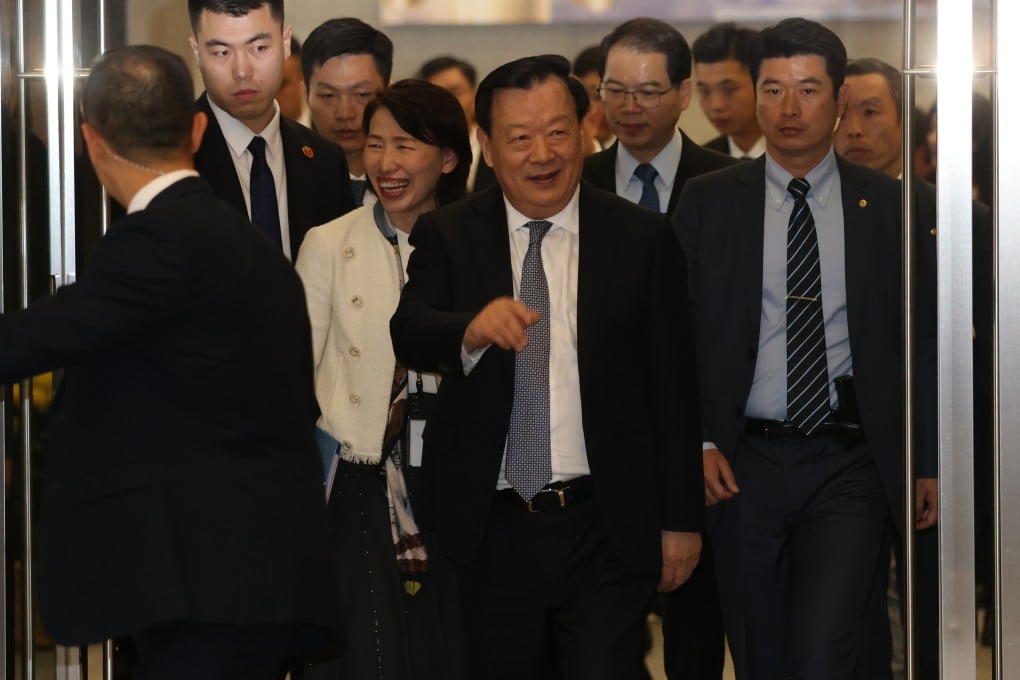Advertisement
Opinion | Beijing’s point man in Hong Kong could clear the air on patriotism and freedom of speech
- A pro-establishment lawmaker’s criticism of a former Legco president’s questions about certain aspects of the proposed Article 23 legislation is troubling
- The director of the Hong Kong and Macau Affairs Office, who is visiting the city, could clarify how patriotism and constructive criticism can coexist
Reading Time:3 minutes
Why you can trust SCMP
32

Beijing’s point man on Hong Kong, Xia Baolong, is in the city for his second fact-finding visit in a year. The director of the Hong Kong and Macau Affairs Office will be taking the pulse of the city and its people, and gauging the impact of the government’s work.
The office said Xia aims to “work with the Hong Kong government and all sectors of society to plan a new stage of development for Hong Kong to better safeguard its long-term prosperity and stability and the long-term development of ‘one country, two systems’”.
His visit coincides with the financial secretary’s delivery of his budget speech at the Legislative Council and the public consultation on the legislation of Article 23 of the Basic Law.
Advertisement
Hong Kong enacting local laws to safeguard national security, fulfilling our constitutional obligation under Article 23 of the Basic Law, is no doubt a central government priority. Xia’s visit, during the last week of the public consultation on the legislation, is politically significant. These laws, after all, are meant to protect the interests of the country.
Hong Kong’s chief executive has said that “general opinion” supports “the overall goal of enacting Article 23” – that’s good news for Xia to deliver to the central government. The urgent need for such legislation is undeniable, unlike with the city’s first attempt in 2003.
Advertisement
Given the events of the years leading up to the 2019 social unrest and the high-profile trials related to it, together with the National People’s Congress Standing Committee’s passing of a national security law for Hong Kong in June 2020, completing the process now is makes sense.
Advertisement
Select Voice
Choose your listening speed
Get through articles 2x faster
1.25x
250 WPM
Slow
Average
Fast
1.25x

